4 lessons learned from years working remotely in one of the most distributed industries ever, the Language Industry
I guess it is true what we heard a thousand times, that life meaning can be found in the small details and the little (often guilty) pleasures; things that we take for granted daily and that we only really value when we lose them.
That happened to me yesterday, for the first time since the coronavirus pandemic broke out, I was able to meet my friends Manuel, Angel, and Carlos for an aperitif!
That first toast with our beers and those tapas that we ate tasted like glory to me, the best of my life! How cool it was to spend time with them after so many weeks confined!
With our city now in lockdown Phase 2 and with the restaurants gradually making way for what we call “new normal” we were chatting a little bit about everything, we got up to date and we told each other how we organized ourselves so as not to go crazy during so many weeks without leaving our homes.
One of the topics that came up was the topic of working from home.
For my buddy Angel, it was the first time that he really worked from home, and he told me that it was difficult for him, it was really hard according to him!
Tapas in the “new normal” feels weird with a mask!
Adapting to work from home might be more difficult than anticipated, and while it is true that not going to the office offers certain benefits and advantages that we cannot deny, it is no less true that working remotely is not something that is the best option for everyone.
It requires a mindset, tools and a lifestyle that you have to like, and many people believe that working remotely will like it because the idea sounds good; in principle, since you get up less early, fewer traffic jams, you spend less on eating out in restaurants, you can better organize yourself to take children to school or extracurricular classes…. All that sounds great! but the reality check might be different, and that's something that Angel told me while we were tasting those nice “patatas bravas”, he mentioned struggles such as not having adequate equipment, or that he ended up working many hours and he had a feeling of loneliness ... all that was not new to me, it's a common pattern that I have seen in the past, not only for me but also for newbies embracing working away from the office.
Because of the nature of the work I do, and because of the industry in which I work, adapting to working full-time at home since March is something that I have managed to do in a relatively simple way, the Localization industry is an industry that has been distributed since it was born and that has helped me a lot, as of today I’m quite used and comfortable working remotely.
Actually, I remember that I have always worked with people on remote teams, both teammates and translators, LSPs, or even my boss! I have been without a boss for more than a decade to report that s/he is the same office or country where I am ... it is for this reason that listening to Angel describing how the dream of working from home in a way became a kind nightmarish, today, I have taken the time to reflect and document here in this post what has been my 4 great lessons learned in recent years on how to work remotely.
Angel is really looking forward to returning to the office, but if you want to explore more about how to embrace this new way of working that COVID has accelerated, I recommend you continue reading and perhaps some of the things that I have learned in a trial and error mode can be useful to you!
Here we go!
4 lessons learned working remotely
1. The right mindset and the right skills
During the time I have spent in my life working remotely, or in hybrid models or analyzing (Zapier), or reading books about working remotely(The Year without pants is my favorite one on that topic) how companies with distributed teams work, I realized that mastering and polishing certain skills help us flourish or languish. If we handle these skills well and if we strive to improve them, working remotely is a very valid option as a lifestyle!
Be a doer, hire doers. Doers will get stuff done, even if they are working from a lonely island. As a doer you still need direction and if you manage doers, you’ll have to provide that direction and guidance. If those conditions exist, doers are unstoppable!
Be a good writer. When we are in the office there are many conversations that when we work remotely pass from word of mouth to documents, chats, posts, status reports ... Written communication is one of the most important parts of remote teams. Therefore, good writing skills are crucial… in recent years I have put a lot of emphasis on improving my writing skills through this blog or writing articles for Nimdzi in addition to the documents that I create in my daily work at King, forcing myself to write helps me that my communication skills are not diminished by working remotely.
You have to feel good without having a social workplace. This one is so important…. A deal-breaker for many who tried a WFA (Working From Anywhere) lifestyle. If you really get your energy by interacting with others via face to face interaction, then remote working will be super tough for you. The truth is that remote workplaces are usually less social than co-located ones. People on remote teams need to be ok with that and have their own social support system. Personally, I found ways to create my own social support system by working occasionally in a coworking space, plus attending Toastmasters sessions, Loc lunch events, Product UX meetups….
You have to be tech-savvy. You don't need to become an IT guru, but the reality is that when you work remotely you have to have a certain capacity to solve your own problems, either with hardware with your internet connection /computer or with certain parameters of the software you use daily. You don't have to be a tech wizard, but at least have some familiarity with tools and be open to ongoing learning.
You are an efficient communicator. Hello Toastmasters! All of you who know me either because we have met at an event or because you regularly read my blog will know that I am an unconditional fan of the Toastmasters international organization. I have been affiliated with Toastmasters since 2015. And, as Professor Conor Neill says, "nothing brings to your life more opportunities that speaking well in public"… well, you know what. …. being a good communicator is also super important when we work remotely ... and in a nutshell, a presentation that we make in Zoom is not so different from doing it in a real physical place, since the guidelines and the strategy will be similar in at least an 80%; when we're working remotely. We still need to actively communicate with our team.
We have to communicate via direct messaging apps, email, and texts, so being able to get your points across clearly and quickly is essential
2.- Learn to avoid burn-out
When I commented to my friend Carlos that there were times when I felt overwhelmed and burned, he made fun of me 😝Miguel, you do work making video games, from home, you do “what you want”, how can someone might end burnout living like that? ok, fair enough ... But the truth is that working from home "burns" you. You live where you work, you work where you live, and unless you learn to control certain habits, the feeling of mental fatigue is guaranteed. This is what has worked best for me to avoid, or at least to minimize the burnout feelings!
Create a morning routine. When we work in an office, the journey to the office itself serves as a routine to prepare us for the day ahead, that does not happen at home, and going from bed to a quick coffee while checking email is something I did before. , and that has not helped me at all. I started the day quickly and stressed. Now my days are different. I don't touch the computer as soon as I get up, I prepare breakfast, I read a little and then I go to the gym ... that routine avoids that mental fatigue of always working or thinking about work when being at home.
Create a hard-stop. It is very important to know when to stop and to have a work schedule. It is very important to understand that there is always work to be done and you’ll have to accept that it’s not possible to finish all of it. If you try, you will burnout. That has happened to me in the past and it is not a pleasant feeling. So, if we save 2 hours of commuting then this does not mean that we should invest them in working 2 more hours, if it is for a punctual effort or to guarantee delivery then ok, it is worth it, but the temptation to work more hours when we are at home is a real threat. Create a hard stop and that will help you to have a more balanced relationship with your work when working remotely.
Take short breaks. Use the little moments of free time throughout the day to your advantage, take a short walk, grab a cup of coffee away from your computer or meditate! Meditation is not for me, I cannot silent my head and my inner voice😝 but a 15-minute walk listening to my Spotify playlists decompress my brain in those days when I have a video conference and then another and then another….
Make time for human interaction. Burnout is always tough, and I think it affects everyone from time to time. One of the hardest things about working remotely is the lack of human contact. Usually, burnout is a clear sign for me that it's time to get out of the house and go and spend time with real people. When that happens, I organize a 45-minute lunch with a family member, a friend, a freelance colleague ... I always feel re-energized after these breaks and I consider them an investment in my future productivity, rather than something that it's delaying me.
A hobby to break patterns. Hobbies are super helpful to distract you from the feeling that because you work from home that home always has to mean work. Home doesn’t always have to mean work and if we have a home hobby this will help us to avoid burnout (mine is gardening!)
3.-Learn how to be productive
Less distraction = more meaningful and quality work, so how we can achieve this?
Control distractions and this will lead to faster work. At home, especially when children are at school 😛there are far fewer distractions than at the office. In fact, I do not know many cases of people who are capable of producing deep work in those wonderful offices open floor so trendies that we see nowadays. But even so, at home, there are distractions, whether it is going to the kitchen every couple of hours to snack on something or digital distractions such as consulting certain websites too often. That happened to me and I found myself going frequently to newspaper websites. In my case what has helped me to be more productive in this particular case is to block certain websites with the help of program blockers. A browser extension like StayFocused for Chrome will block time-wasting sites for specific periods. I also like Productivity Owl for Chrome, which lets you save distracting pages
Chunk tasks. Multitasking is a great enemy of productivity, and a productivity technique that I have learned, and that has helped me tremendously is what productivity gurus call tasks chunking. If you have different types of work to get through, grouping similar tasks together into time “chunks” can make you more productive than switching between different types of work all day. For instance, small, simple tasks can be saved for the periods of your day when you’re low in energy, or in-between meetings when you don’t have time to get stuck into bigger projects.
Front-load your day. This is another productivity technique that has become a great lesson that I have learned to be more productive. Front- loading is a productivity tactic of accomplishing more tasks at the beginning of your week rather than the end. ... By forcing yourself to think in crunch mode at the very beginning of the week, you'll become more focused and less likely to fall victim to distractions.
Pomodoro is my favorite technique to be productive. Surely you've heard of it, but if not let me explain you since the concept is very simple. The Pomodoro technique is a time management system that encourages people to work with the time they have — rather than against it. Using this method, you break your workday into 25-minute chunks separated by five-minute breaks. These intervals are referred to as pomodoros. After about four pomodoros, you take a longer break of about 15 to 20 minutes. If we want this to be effective we have to do it right and not cheat ourselves! This means that if during those 25 minutes we get up to go to the bathroom or to prepare a coffee, the current Pomodoro cycle is considered interrupted and starts from scratch again. How many pomodoros are you able to make? Try it and tell me! it took me several weeks to go from 1 to 5 pomodoros a day!
As a Pomodoro tool, I use Be Focus on my Mac, there are many apps also for mobile, but even a countdown on your mobile or a traditional watch can help us tremendously and re-learn to stay focused
Block your own calendar. Working remotely does not mean that we are on a desert island, our calendar continues to be the largest source of distractions via virtual meeting requests. To control my productivity and control my calendar has helped me enormously to block periods during the week in which I do not want to be disturbed for meetings since I need mental space to produce deep work.
4.- Creating THE culture
When it comes to remote teams, culture is a huge topic. With a distributed team you know culture will be hard to build. Culture will magically NOT happen. Don’t focus on the task and ignore the team culture, that might work in the short run, but it will lead to serious problems down the road. For this reason, creating a culture is essential, and this is what I have learned about this specific area.
A culture of shipping - Steve Jobs among his many management pearls left us the following quote “A real artist ships” “Ship”, in the software/products world that Jobs belonged to, means “deliver something to your customers”. The phrase means that real artists don't work in some ivory tower but actually put their stuff out there for the people to see/buy/appreciate / etc.
As in, real artists also have the skill to finish their stuff - and to know when to cut corners and be pragmatic in order the stuff to finally be completed (as opposed to insisting to some notion of total purity and perfection and missing all of their deadlines and chances to deliver something). Get clear roadmaps and OKRs as this will be your compass to embrace the culture of shipping
Culture of accountability. When working in remote it is easy to fall into the temptation of micromanagement. A dangerous temptation and it is a slippery slope since once we start to doubt if someone is working or not, it means that we have lost trust that they are doing what they should be doing. All this is solved by working to establish a culture of accountability. Powerful elements of that culture of accountability are the public weekly status reports where every person on the team posts an update to show about what they shipped/worked that week and what they are working on for the next week.
This makes it easy to keep everyone in the loop on projects, and also, it holds everyone accountable to everyone else to do their part.
Trust - Working remotely means trusting people, and I learned how to do it from Matt Mullerberg, the charismatic leader of Automatic (Wordpress), one of the companies that have spent years working on a distributed working model. Matt coined the acronym API, but not in the sense that we all imagine of “computer code”, no, the approach Matt gave him is much more humane, API for Matt means “Assume Positive Intention”, I really liked that idea, and I tried to incorporate it into my repertoire of skills when working remotely.
Matt explains it very well here in this. video, click on Play but then come back again to my post!
Measure output, not input. When we work remotely, those typical timetables from 9 to 6 do not make much sense anymore, it does not make sense to evaluate or measure the number of hours we dedicate to something, but it is much more effective to focus on measuring the output, we have to put the focus when evaluating team performance distributed geographically in the output and not in the input. In my case, it can be the presentation that I have created, the localization tickets that I have managed, or the proposals for new services that I have carried out. Focusing on measuring the output not the input definitely helps when building a remote culture
Virtual water cooler / virtual coffee machine. This is based on the idea that we still need to socialize so we need to create a virtual water cooler/coffee machine in order to do that, in my case what has worked best is to create a Slack channel dedicated only to socializing Sometimes it is simply to share something funny, a video, a photo, a piece of news... creating this "no work" space is an idea that I liked a lot and helps me create a little more personal links with co-workers. By the way, if you choose to try this idea that I suggest here, I recommend you use emojis, memes ... a good meme at the right time is unbeatable
Socialize virtually - remote lunches with the team is something I have also done as one more tool to break the physical barriers that separate us, a virtual meal will never be the same as sharing a table in a nice restaurant with a partner, but hey, with a nice Zoom background and ordering sushi at home we can make a virtual meeting that in a way hacks our brain!
Over the years, I've learned a few things about building, managing a remote team, and how to manage myself to be efficient no matter where I am… Sure there are others with more experience at this than me and with larger teams (Automattic, for example, has over 850 employees in over 60 countries) but I wanted to share with you a few tips and ideas summarized in the 4 main areas that I have learned while working remotely… I hope this has been useful and I hope this might help you somehow to be happy and efficient working from anywhere!
Have a good one!
@yolocalizo
Another great lesson learned that I have learned working remotely that I did not covered above … it’s .. that sometimes my kids cook for me a cake to make the rest of my afternoon better and more productive 😛
Sources consulted while shaping this post
Zappier (excellent collection of post and a lovely book full of tips)
Remotive (make sure you subscribe to the newsletter, it’s a great one!)
The Year without pants Scott Berkun is an amazing writer, funny and informative, this is the best book I read about WFA ….

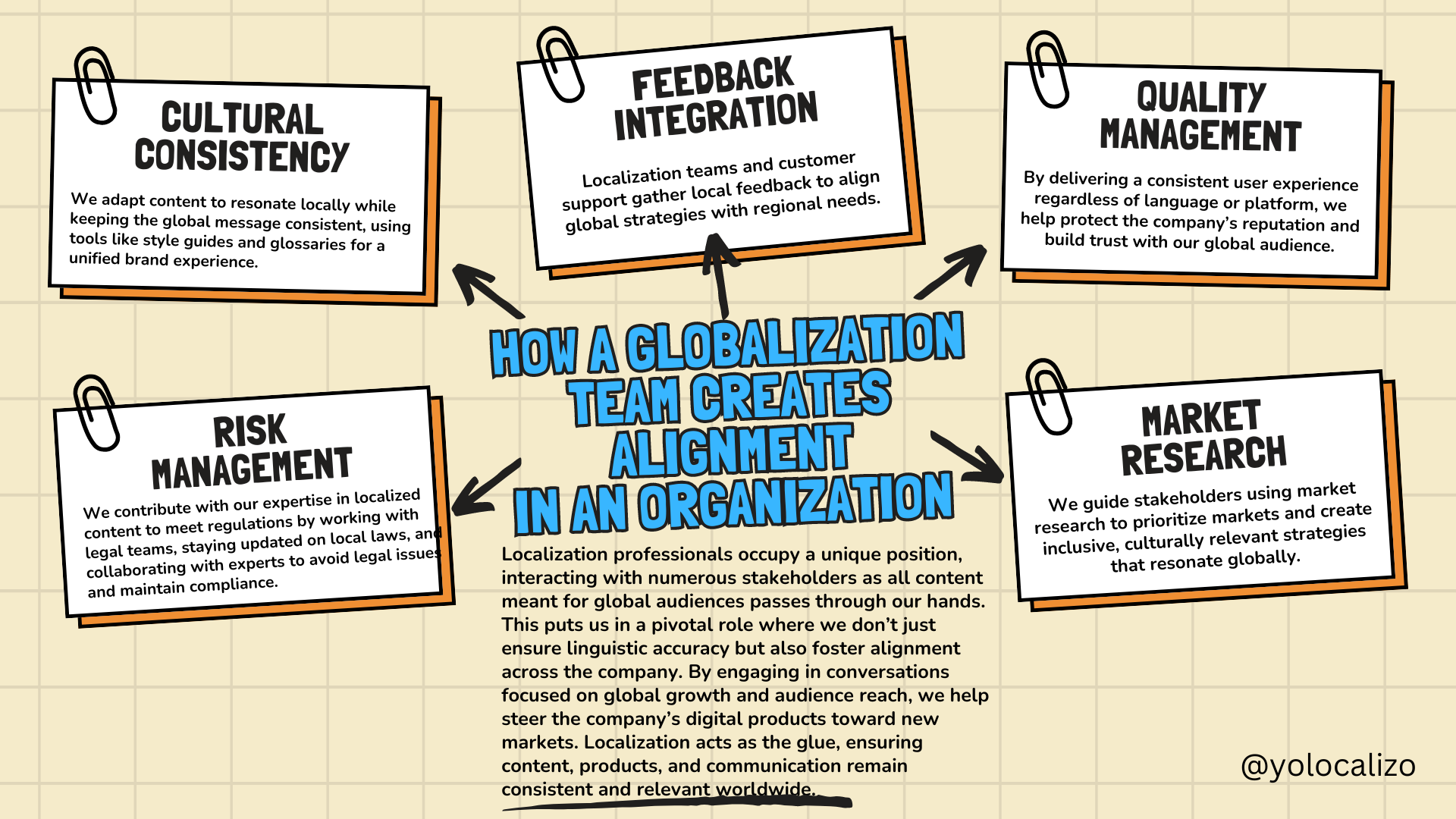
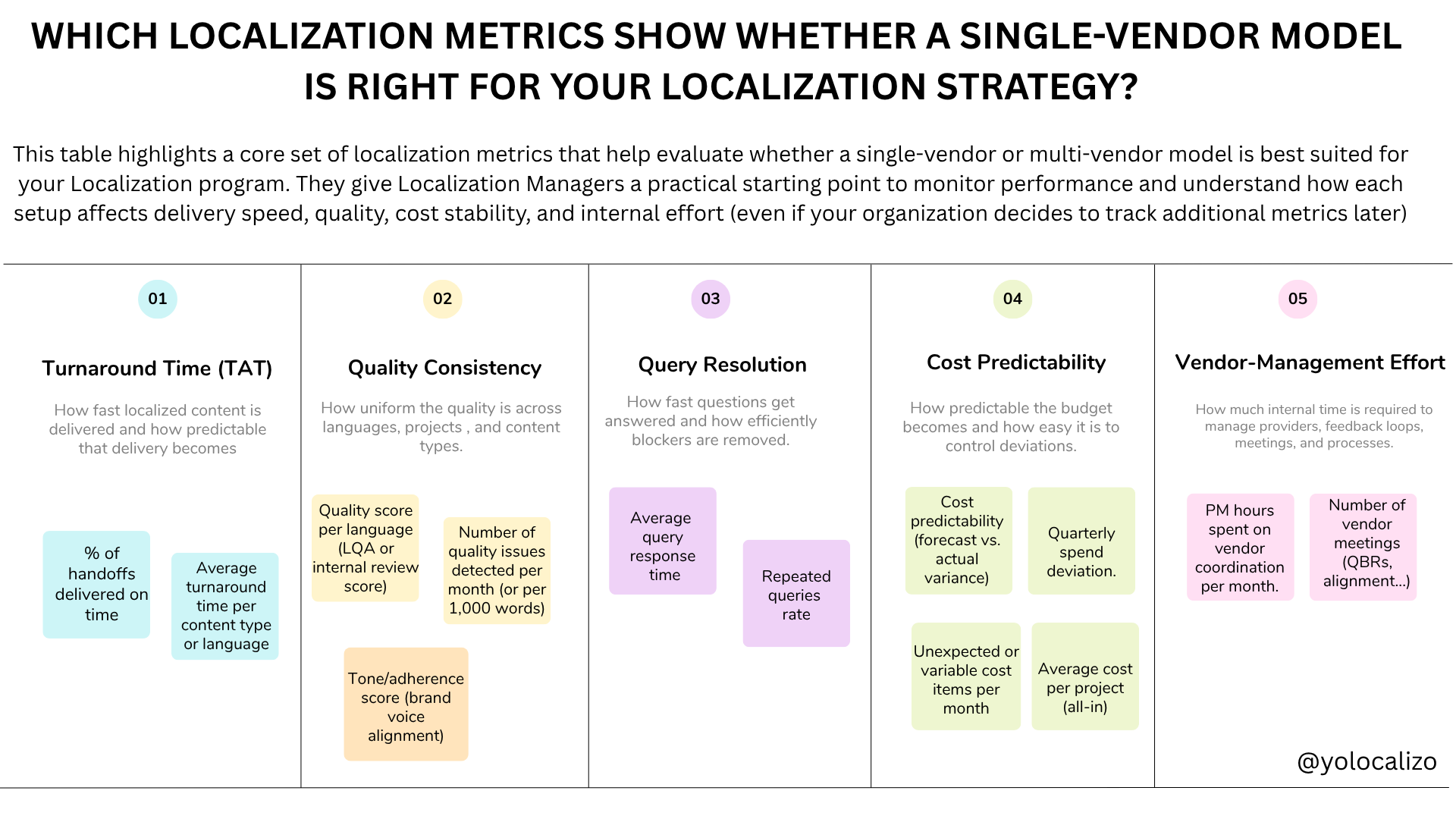




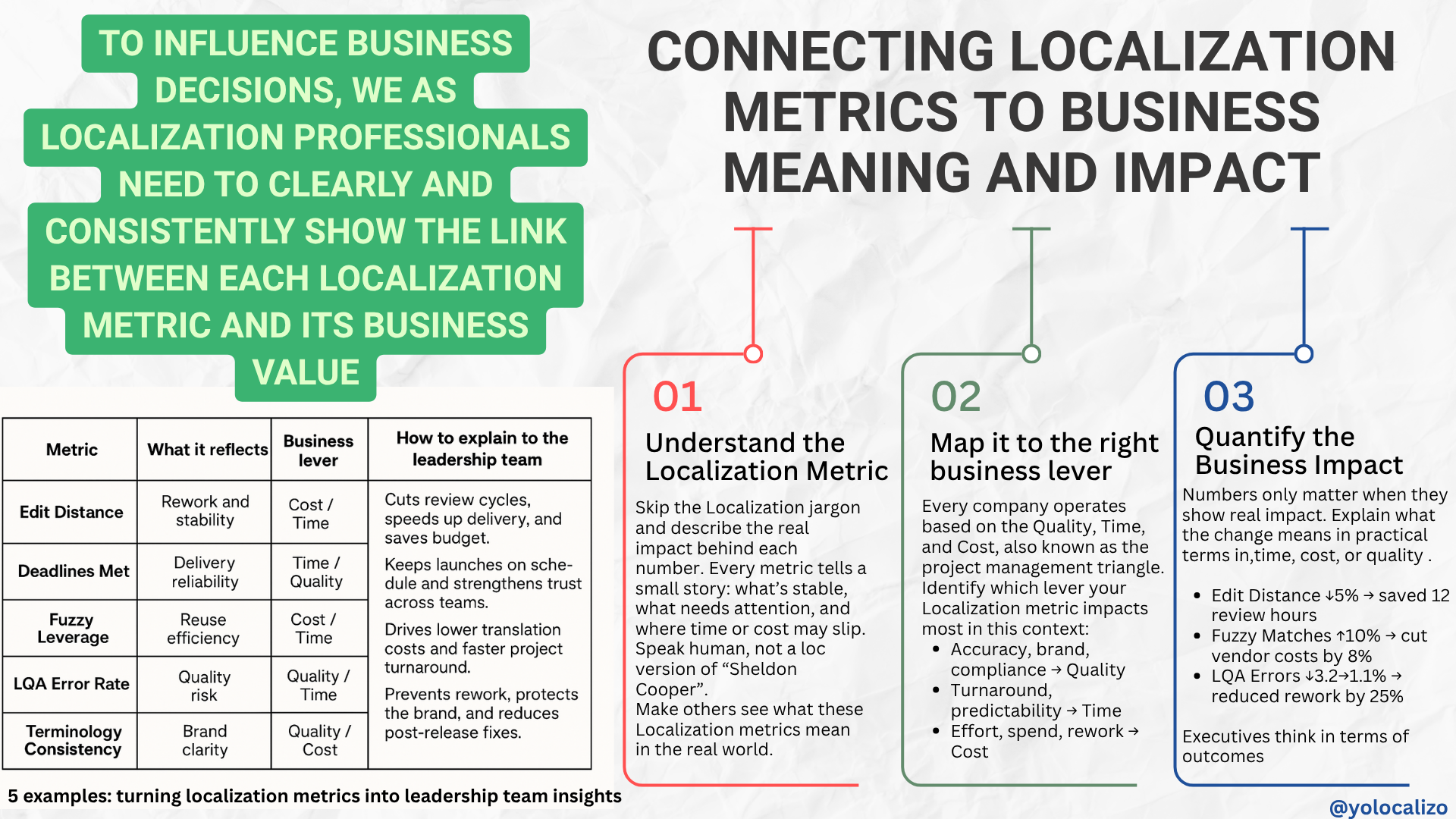









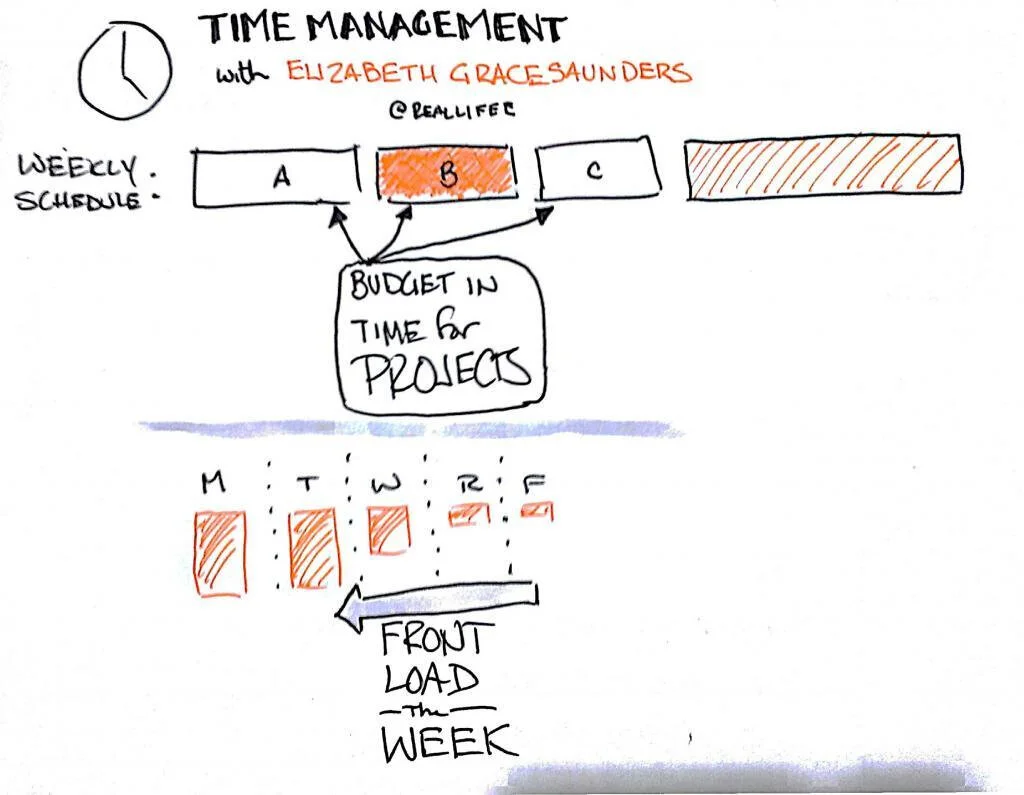
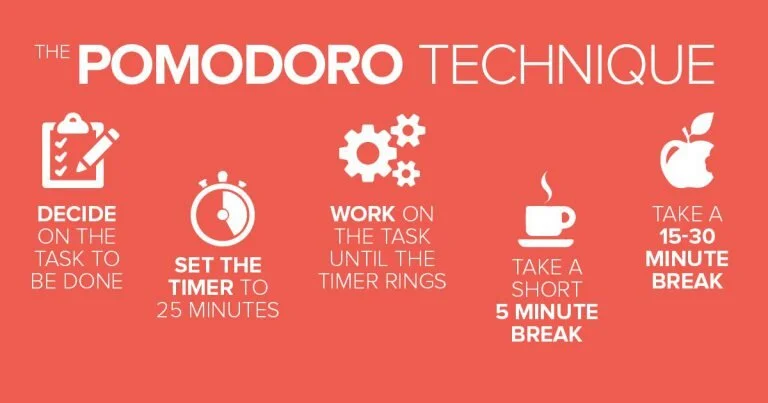




This feels like a pivotal moment. Localization teams are being asked to support more markets, move faster, use AI responsibly, and show impact, not just output. Expectations are higher than ever, but many teams are still trained mainly for execution. We are strong at delivering localization work, yet we often struggle to move from output to outcome and to clearly explain the impact of what we do.